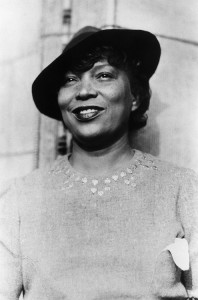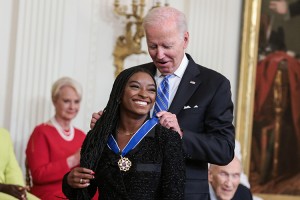Bookish Birthdays: Zora Neale Hurston
Monday, January 8th, 2024Born on January 7, 1891, in Eatonville, Florida, Zora Neale Hurston grew up to become a legendary writer. Hurston was an African American writer known for her novels and collections of folklore. Hurston’s best-known novel is Their Eyes Were Watching God (1937). The story sensitively portrays a young African American woman’s realization of her identity and independence.
Hurston studied anthropology at Barnard College, graduating in 1928. Anthropology is the scientific study of humanity and of human culture. Hurston recognized the significance of the folklore of the Southern United States and the Caribbean countries. She collected Florida folk tales and descriptions of Louisiana folk customs in Mules and Men (1935). In Tell My Horse (1938), she described folk customs of Haiti and Jamaica.
Hurston wrote three other novels—Jonah’s Gourd Vine (1934), Moses, Man of the Mountain (1939), and Seraph on the Suwanee (1948). All her novels display the author’s gift for storytelling, her interest in Southern Black folk customs, her metaphorical language, and her robust sense of humor. Hurston also wrote an autobiography, Dust Tracks on a Road (1942). She died on Jan. 28, 1960.
In 1995, the Library of America published two volumes of Hurston’s writings, Novels & Stories and Folklore, Memoirs, & Other Writings. A collection of her folk tales from the rural South was published for the first time in 2001, after Hurston’s death, as Every Tongue Got to Confess. Her account of the life of the last survivor of the last American slave ship, titled Barracoon: The Story of the Last “Black Cargo,” was published in 2018. Hurston had interviewed the 86-year-old formerly enslaved man in 1927. A number of her early stories were collected for the first time in Hitting a Straight Lick with a Crooked Stick (2020). Some of her essays were collected in You Don’t Know Us Negroes and Other Essays (2022).













